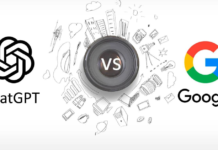
Understanding the Legal Entity Identifier (LEI)
In the world of finance, the Legal Entity Identifier (LEI) has emerged as a crucial tool for identifying entities engaged in financial transactions. The LEI is a unique 20-character alphanumeric code that is assigned to legal entities participating in financial markets. It serves as a universal identifier, providing standardized and reliable information about these entities.
The Necessity of LEI for Various Entities
LEI is necessary for a wide range of entities, including corporations, banks, investment firms, hedge funds, and even government agencies. It helps in ensuring transparency and accountability in financial transactions by providing a standardized identification system.
For corporations, having an LEI is essential for compliance with regulatory requirements. It enables regulators to monitor and track financial transactions, identify potential risks, and prevent fraudulent activities. Additionally, it allows investors and other stakeholders to access accurate and up-to-date information about a company’s ownership structure, financial health, and legal status.
Banks and financial institutions also benefit from having an LEI. It facilitates the efficient processing of transactions, reduces operational risks, and enhances the overall stability of the financial system. With an LEI, banks can easily identify their counterparties, assess their creditworthiness, and comply with regulatory reporting obligations.
Furthermore, investment firms and hedge funds rely on LEIs to comply with reporting requirements imposed by regulatory bodies. It enables them to accurately report their exposure to different financial instruments, monitor market activities, and assess potential risks associated with their investments.
Even government agencies find LEIs valuable in their efforts to combat financial crimes, such as money laundering and terrorist financing. It allows them to track the movement of funds across borders, identify suspicious activities, and take appropriate actions to safeguard the integrity of the financial system.
The Process and Sources for Obtaining an LEI
The process of obtaining an LEI is relatively straightforward. Entities can apply for an LEI through authorized Local Operating Units (LOUs) or through their financial institution. The LOUs are organizations that are accredited by the Global Legal Entity Identifier Foundation (GLEIF) to issue and maintain LEIs.
When applying for an LEI, entities need to provide certain information, such as their legal name, registered address, and other relevant details. They may also need to submit supporting documents to verify their identity and legal status. Once the application is submitted, the LOU reviews the information and assigns a unique LEI to the entity.
There are several sources from which entities can obtain an LEI. One of the most common sources is the Global Legal Entity Identifier Foundation (GLEIF) website. It provides a comprehensive list of authorized LOUs and offers a search function to find the appropriate LOU based on the entity’s jurisdiction.
Entities can also obtain an LEI through their financial institution. Many banks and financial service providers offer LEI registration services to their clients, simplifying the process and ensuring compliance with regulatory requirements.
The Benefits of Having an LEI
Having an LEI offers numerous benefits to entities involved in financial transactions. Firstly, it enhances transparency and trust in the financial markets. With a standardized identification system in place, investors and stakeholders can access reliable and accurate information about entities, enabling them to make informed decisions.
Secondly, an LEI simplifies regulatory reporting and compliance. Entities can easily fulfill their reporting obligations by using their LEI, reducing administrative burdens and ensuring accurate and timely submissions.
Thirdly, an LEI facilitates the efficient processing of transactions. It enables quick and accurate identification of counterparties, reducing the risk of errors and delays in financial transactions.
Lastly, having an LEI contributes to the overall stability and integrity of the financial system. It allows regulators to monitor and track financial activities, identify potential risks, and take appropriate actions to prevent systemic failures.
The Projected Significance of LEI in the Future of Finance
The Legal Entity Identifier is expected to play a significant role in the future of finance. As the global financial system becomes increasingly interconnected, the need for a standardized identification system becomes more crucial.
Regulators and policymakers recognize the importance of LEIs in promoting transparency, reducing risks, and enhancing the efficiency of financial markets. Efforts are being made to expand the adoption of LEIs across jurisdictions and encourage broader participation from entities in different sectors.
Furthermore, technological advancements, such as blockchain, have the potential to revolutionize the way LEIs are used and managed. Blockchain technology can provide a decentralized and secure platform for storing and verifying LEI data, ensuring its integrity and accessibility.
In conclusion, the Legal Entity Identifier (LEI) is a vital tool in the world of finance. It provides a standardized and reliable identification system for entities engaged in financial transactions. With its necessity for various entities, streamlined application process, and numerous benefits, LEIs are expected to continue playing a significant role in the future of finance.









